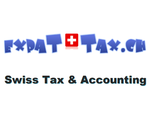Who is eligible for expat tax deductions?
Expats who have been sent to Switzerland on a temporary basis by a foreign employer and are either in a senior position or are a specialist in their field are eligible for expat tax deductions. This is due to the fact that there are usually additional costs associated with moving abroad on a temporary basis.
Senior staff are regarded as members of the management board, members of the board of directors or functionaries in similar positions. Once in Switzerland, the expatriate must also have an executive job title in the Swiss company.
Specialists are those who are placed on international assignment due to their professional qualifications. For example, if you are particularly qualified in computer science and are needed by a Swiss company for this expertise.
A temporary stay is regarded as a stay in Switzerland for up to five years, where the employee’s intention is to return to their prior place of employment in the foreseeable future. If the expatriate becomes a permanent resident in Switzerland, these deductions can no longer be claimed.
What you are entitled to
Normal professional expenses
For everyone working in Switzerland, expatriates or otherwise, the following professional expenses are usually deductible:
- Travel between work and home
- Working clothes and/or tools you need, usually given as a lump sum
- Extra cost of eating out at lunchtime
Special professional expenses
For expatriates who meet the above requirements and are resident in Switzerland, the following expenses are also deductible:
- Relocation costs to Switzerland and back, including travel costs for the expatriate and their family at the beginning and end of their employment
- Housing costs in Switzerland while maintaining housing abroad
- Costs of lessons for underage foreign language children in private schools if the state school does not provide lessons in their language
Any expenses that are provided to the expatriate, no matter what form they are paid in, must be confirmed in corresponding salary certificates. Further confirmation in writing should be set out based on guidelines provided by the Swiss Tax Conference (SSK) and the Federal Tax Authorities (ESTV) .
Claiming your special professional expenses
If you are taxed the standard way
Special professional expenses are taken into account irrespective of whether the expatriate paid the expenses themself or whether they were paid by the employer and added to the salary certificate as a taxable income.
For the deduction of housing costs, a monthly sum of up to CHF 1,500 can be claimed instead of the costs incurred. This is only possible if the expatriate can prove that they have kept a home abroad which has been retained for their own use and not rented it out. Proof can be in the form of a rental contract or confirmation of residence.
If you are taxed at source and not filing a tax declaration
If tax is deducted before the expatriate receives their earnings, it is necessary to distinguish whether the employer pays the expatriate the special professional expenses on the basis of a lump sum or on the basis of receipts.
Refunded on the basis of receipts
If the expatriate is refunded on the basis of receipts, no tax at source is charged on these payments but the employer is obliged to retain the original receipts.
Refunded on the basis of a lump sum
On the other hand, if the expatriate is refunded on the basis of a lump sum, the professional expenses are considered on the basis of it equalling CHF 1,500. The employer can then deduct taxes at source on the remaining amount only. Higher costs can be claimed if the expatriate files a claim for the correction of the tax at source.
Maximise your expat tax return
There are certain companies, such as Expat Tax Switzerland , who can help you fill out your tax returns and find out what you are eligible for. Their team offer free consultations to discuss your tax needs along with affordable rates throughout the process.




